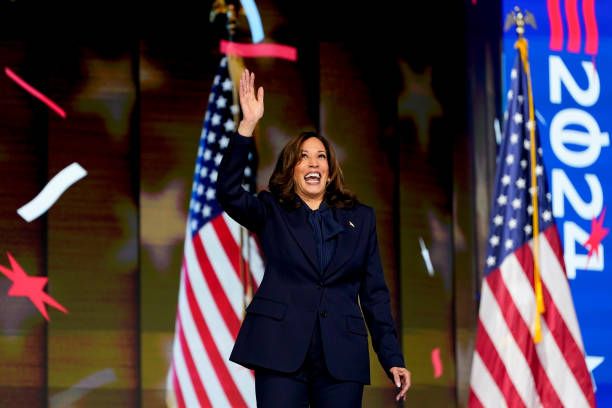Americans split on whether Harris or Trump would be better suited to handle war in Ukraine, poll suggests

According to a Quinnipiac University poll released on Aug. 29, Americans are divided on which presidential candidate "would do a better job handling" the war in Ukraine if elected in November. The poll finds 49 per cent of respondents believe Republican candidate Donald Trump would do a better job, while 47 per cent think Democratic candidate Kamala Harris would be more effective.
The findings come as both candidates have revealed that, if elected, they would take a drastically different approaches on the war in Ukraine.
While accepting her nomination at the Democratic National Convention (DNC) on Aug. 23, Vice President Kamala Harris said she would "stand strong with Ukraine and our NATO allies."
Although Harris has not specified the details of her plan to support Ukraine, it is likely she will continue to provide Ukraine with military aid, in line with policies of the current Biden administration.
At Ukraine's global peace summit in Switzerland in June, Harris represented the U.S. and announced over $1.5 billion in additional support for Ukraine. The summit also marked her sixth meeting with President Volodymyr Zelensky.
Her opponent, former President Donald Trump, who was nominated as the Republican Party's presidential candidate on July 18 at the Republican National Convention (RNC), vowed to end the war in Ukraine. The plan reportedly involves ceding territory to Russia, though Trump has provided minimal details on the specifics of his proposal.
“I would tell (President Volodymyr) Zelensky, no more. You got to make a deal. I would tell Putin, if you don't make a deal, we're going to give him a lot. We're going to (give Ukraine) more than they ever got if we have to,” Trump said in July 2023, adding that “he will have the deal done in one day.”
The Quinnipiac University poll revealed that divisions in opinions on Ukraine fall largely along party lines, with 93 per cent of likely Republican voters believing that Trump would be better suited to handle the war, while 93 per cent of likely Democratic voters believed Harris to be better suited. Only four per cent of respondents were "not sure."
Despite the divisions, 85 per cent of respondents agreed that the war in Ukraine was an "important" factor in the respondent's choice for president, while just 14 per cent was it was not important.
Only 18 per cent of respondents said that the war would be an "extremely important" factor in their decision - the lowest among the list of issues presented, and directly behind the Israel - Hamas war.
The general election will to take place on Nov. 5, with the new president being inaugurated in January 2025.
Ukrainian officials, including Zelensky, have stressed that Kyiv will continue to cooperate productively with any U.S. administration, regardless of the outcome of the November election.
The survey was conducted on Aug. 23-27 surveying 1,611 likely voters across the United States, and has a margin of error of +/- 2.4 percentage points, 19 times out of 20.











